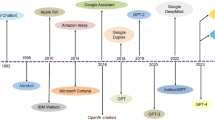Abstract
Polypharmacy remains an important challenge for patients with extensive medical complexity. Given the primary care shortage and the increasing aging population, effective polypharmacy management is crucial to manage the increasing burden of care. The capacity of large language model (LLM)-based artificial intelligence to aid in polypharmacy management has yet to be evaluated. Here, we evaluate ChatGPT’s performance in polypharmacy management via its deprescribing decisions in standardized clinical vignettes. We inputted several clinical vignettes originally from a study of general practicioners’ deprescribing decisions into ChatGPT 3.5, a publicly available LLM, and evaluated its capacity for yes/no binary deprescribing decisions as well as list-based prompts in which the model was prompted to choose which of several medications to deprescribe. We recorded ChatGPT responses to yes/no binary deprescribing prompts and the number and types of medications deprescribed. In yes/no binary deprescribing decisions, ChatGPT universally recommended deprescribing medications regardless of ADL status in patients with no overlying CVD history; in patients with CVD history, ChatGPT’s answers varied by technical replicate. Total number of medications deprescribed ranged from 2.67 to 3.67 (out of 7) and did not vary with CVD status, but increased linearly with severity of ADL impairment. Among medication types, ChatGPT preferentially deprescribed pain medications. ChatGPT’s deprescribing decisions vary along the axes of ADL status, CVD history, and medication type, indicating some concordance of internal logic between general practitioners and the model. These results indicate that specifically trained LLMs may provide useful clinical support in polypharmacy management for primary care physicians.
Similar content being viewed by others
Data Availability
Data is provided in the Supplementary Materials.
References
Organization WH., Ageing and health. https://www.who.int/news-room/fact-sheets/detail/ageing-and-health. Published 2022. Accessed July 21, 2023.
Morin, L., Johnell, K., Laroche, M. L., Fastbom, J., Wastesson, and J. W., The epidemiology of polypharmacy in older adults: Register-based prospective cohort study. Clin. Epidemiol. 10:289–298, 2018.
Herr, M., Grondin, H., Sanchez, S., et al., Polypharmacy and potentially inappropriate medications: A cross-sectional analysis among 451 nursing homes in France. Eur. J. Clin. Pharmacol. 73(5):601–608, 2017.
Barnett, M. L., Bitton, A., Souza, J., and Landon, B. E., Trends in Outpatient Care for Medicare Beneficiaries and Implications for Primary Care, 2000 to 2019. Ann. Intern. Med. 174(12):1658–1665, 2021.
Molokhia, M., and Majeed, A., Current and future perspectives on the management of polypharmacy. BMC Fam. Pract. 18:1–9, 2017.
Halli-Tierney, A. D., Scarbrough, C., and Carroll, D., Polypharmacy: Evaluating risks and deprescribing. Am. Fam. Physician. 100(1):32–38, 2019.
Jungo, K. T., Mantelli, S., Rozsnyai, Z., et al., General practitioners’ deprescribing decisions in older adults with polypharmacy: a case vignette study in 31 countries. BMC Geriatr. 21(1):19, 2021.
Rao, A., Kim, J., Kamineni, M., et al., Evaluating GPT as an Adjunct for Radiologic Decision Making: GPT-4 Versus GPT-3.5 in a Breast Imaging Pilot. J. Am. Coll. Radiol. 2023.
Rao, A., Kim, J., Kamineni, M., Pang, M., Lie, W., and Succi, M. D., Evaluating ChatGPT as an Adjunct for Radiologic Decision-Making. medRxiv. 2023.2002.2002.23285399, 2023.
Rao, A., Pang, M., Kim, J., et al., Assessing the Utility of ChatGPT Throughout the Entire Clinical Workflow. medRxiv. 2023.2002.2021.23285886, 2023.
Mantelli, S., Jungo, K. T., Rozsnyai, Z., et al., How general practitioners would deprescribe in frail oldest-old with polypharmacy — the LESS study. BMC Fam. Pract. 19(1):169, 2018.
Levine, D. M., Linder, J. A., and Landon, B. E., Characteristics of Americans With Primary Care and Changes Over Time, 2002–2015. JAMA Intern. Med. 180(3):463–466, 2020.
Alvis, B. D., and Hughes, C. G., Physiology Considerations in Geriatric Patients. Anesthesiol. Clin. 33(3):447–456, 2015.
Frantsve, L. M. E., and Kerns, R. D., Patient–Provider Interactions in the Management of Chronic Pain: Current Findings within the Context of Shared Medical Decision Making. Pain Med. 8(1):25–35, 2007.
Bicket, M. C., and Mao, J., Chronic Pain in Older Adults. Anesthesiol. Clin. 33(3):577–590, 2015.
Page, A. T., Potter, K., Clifford, R., and Etherton-Beer, C., Deprescribing in older people. Maturitas. 91:115–134, 2016.
Koranteng, E., Rao, A., Flores, E., et al., Empathy and Equity: Key Considerations for Large Language Model Adoption in Health Care. JMIR Med. Educ. 9:e51199, 2023.
Bang, Y., Cahyawijaya, S., Lee, N., et al., A multitask, multilingual, multimodal evaluation of chatgpt on reasoning, hallucination, and interactivity. arXiv preprint. arXiv:230204023, 2023.
Huang, Y., Song, J., Wang, Z., Chen, H., and Ma, L., Look before you leap: An exploratory study of uncertainty measurement for large language models. arXiv preprint. arXiv:230710236, 2023.
Funding
The project described was supported in part by award Number T32GM144273 from the National Institute of General Medical Sciences. The content is solely the responsibility of the authors and does not necessarily represent the official views of the National Institute of General Medical Sciences or the National Institutes of Health.
Author information
Authors and Affiliations
Contributions
A.R. and J.K. wrote the main manuscript and completed data analysis. A.R., J.K., W.L., and M.P. conducted data collection. All authors contributed to experimental design and review of the manuscript.
Corresponding author
Ethics declarations
Competing Interests
The authors declare no competing interests.
Additional information
Publisher’s Note
Springer Nature remains neutral with regard to jurisdictional claims in published maps and institutional affiliations.
Supplementary Information
Below is the link to the electronic supplementary material.
Rights and permissions
Springer Nature or its licensor (e.g. a society or other partner) holds exclusive rights to this article under a publishing agreement with the author(s) or other rightsholder(s); author self-archiving of the accepted manuscript version of this article is solely governed by the terms of such publishing agreement and applicable law.
About this article
Cite this article
Rao, A., Kim, J., Lie, W. et al. Proactive Polypharmacy Management Using Large Language Models: Opportunities to Enhance Geriatric Care. J Med Syst 48, 41 (2024). https://doi.org/10.1007/s10916-024-02058-y
Received:
Accepted:
Published:
DOI: https://doi.org/10.1007/s10916-024-02058-y




